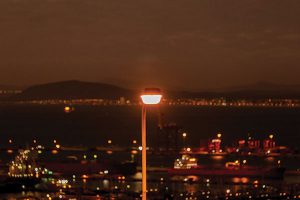Bloomberg
South Africa is considering more than doubling the amount private power producers can generate without requiring a license in a bid to reduce blackouts that are hobbling the economy.
President Cyril Ramaphosa is racing to make an announcement as soon as Sunday, the people said, asking not to be identified as the matter isn’t public. South Africa last year removed a license requirement for private investors to build their own power plants of up to 100 megawatts under a plan to reduce excessive bureaucracy and add generation capacity.
Ramaphosa, who faces party elections in December, is under pressure to end rationing of electricity that’s plagued Africa’s most-industrialised economy for more than a decade. Still, the new measures are unlikely to alleviate the power shortfall soon. A litany of woes, including breakdowns at its coal-fired plants and labour strife, prompted Eskom Holdings SOC to cut 6,000MWs of supply — enough to light up 4 million South African homes — during the latest crisis.
The measures will include “emergency procurement of new capacity, emergency maintenance and ramping up of maintenance,†Finance Minister Enoch Godongwana said in
an interview with Bloomberg Television in Bali.
Red tape is one of the biggest hurdles for private power
producers in South Africa. For instance, setting up a 140-megawatt wind project requires about 60 permits, each of which can take from three months to three years to be approved, according to Niveshen Govender, chief executive officer of the South African Wind Energy
Association.
To cut those bureaucratic delays, the government is also considering easing regulations at agencies including the National Energy Regulator of South Africa, one of the people said.
This won’t be the first time South Africa will announce urgent plans to fix its energy crisis.
The so-called Stage 6 load-shedding, which began last month, led to the worst blackouts in the nation since 2019. Following that crisis, the government pledged to fix Eskom’s woes and announced an
emergency power program.
Electricity has yet to be generated under the plan and at least one company — Karpowership, the world’s biggest supplier of floating gas-fired power plants — is mired in legal cases and has blasted the nation’s government agencies for the stalled project. Failure to boost electricity generation resulted in the nation enduring 77 days of blackouts this year.
 The Gulf Time Newspaper One of the finest business newspapers in the UAE brought to you by our professional writers and editors.
The Gulf Time Newspaper One of the finest business newspapers in the UAE brought to you by our professional writers and editors.
